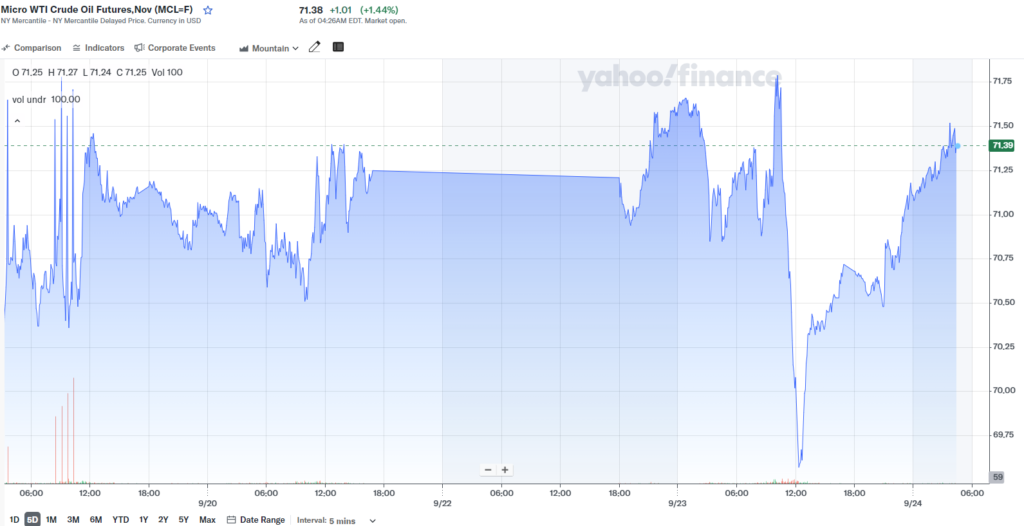Oil and its development

Oil prices closed lower on Monday, mainly due to demand concerns, disappointing eurozone trade activity and a weak Chinese economy. U.S. light crude closed at $70.37 per barrel on Sept. 23, down 2.2%. Brent crude closed at USD 73.90 per barrel with a 0.8% decline. Business activity in the Eurozone fell sharply and unexpectedly in September as the dominant services sector stagnated and the decline in manufacturing accelerated. The world’s largest oil importer ,,China» is currently struggling with deflationary pressures and is trying to lift growth despite a series of policy measures aimed at domestic spending. BOK Financial’s senior vice president for trading, Dennis Kissler said: «Disappointing economic numbers coming out of China, coupled with a surprising slowdown in European manufacturing, puts oil demand at its lowest level so far this year». Concerns about oil supplies also stem from Monday’s Israeli airstrikes on Hezbollah targets, which helped support oil prices. After nearly a year of war in Gaza, Israel is moving to its northern border, across which Hezbollah has been firing rockets in support of its ally Hamas. Further attacks from Israel on Lebanon have raised fears that Iran will become more involved in the conflict, increasing the likelihood that oil exports will be threatened.

US business activity was stable in September, but prices charged for goods and services rose at the fastest pace in half a year. This could indicate an acceleration in inflation in the coming months. Chicago Federal Reserve (Fed) President Austan Goolsbee said on Monday that he expects many more U.S. interest rate cuts over the next year as the U.S. central bank seeks a «soft landing» for the economy that will control inflation without disrupting the labor market. As for oil, a Reuters poll on Monday showed that U.S. crude inventories fell by about 1.2 million barrels last week.